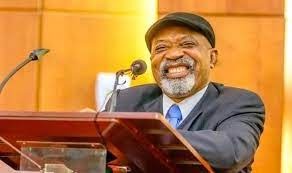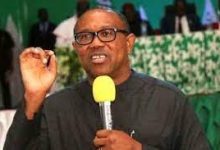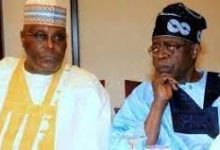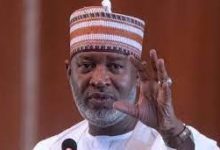ASUU: Register CONUA, NAMDA, FG tells NLC

On Tuesday, the Nigerian government urged the Nigeria Labour Congress to reconsider its stance against the formation of two new academic unions within the country’s public university system.
It was reported by The PUNCH that a ceremony was held at the Federal Ministry of Labour and Employment in Abuja to officially recognize the two new unions, the Congress for Nigerian University Academics and the Nigeria Association of Medical and Dental Academics.
However, President of NLC, Comrade Ayuba Wabba, wrote to Minister of Labour and Employment, Sen. Chris Ngige, requesting the revocation of letters given to the unions on the grounds that their registration was in violation of rules regulating trade unionism.
Ngige replied on October 12, 2022, pleading with NLC to recognize the fledgling unions’ right to free association.
He claimed that he alone has authority to register new trade unions under the Trade Dispute Act of 2004, whether that be through the registration of a brand new union or the regrouping of existing unions.
In 2019, the minister’s committee recommended approving the new unions, and in 2022, the committee did so again. Both times, the Registrar of Trade Unions was involved.
He said the Academic Staff Union of Universities (ASUU) reorganized CONUA and NAMDA so that the system would run more smoothly, and more significantly, so that university professors with different worldviews would be protected.
With ASUU, they are all like seeds on the academic soil of Nigeria, and which will develop into huge trees we don’t know, but the one whose her trees are not yielding excellent fruits, we already know,” Ngige pleaded with the president. Therefore, in the spirit of Freedom of Association, as an uncle of the unions, you should not oppose any of them.
“It should be emphasized that the Honourable Minister of Labour and Employment has the only authority to register new trade unions, either by establishing new trade unions or by regrouping existing ones, in accordance with Section 3 (2) of the Trade Dispute Act, CAP T14. Unlike the cases cited by the President of the NLC, the case of the Nigerian Union of Pensions (NUP) and the regrouped Federal Parastatals & Private Sector Pensioners Association of Nigeria (FEPPAN) from NUP was litigated in the National Industrial Court of Nigeria (NICN), where the Law on Regrouping of Trade Unions was extensively explored and ruled upon.
He noted that in case NICN/ABJ/219/2019, the NICN had bolstered its previous judgement on the issue, which had indicated, among other things, that the Minister of Labor and Employment had the authority to register trade unions.
Noting the distinction between registering a new trade union and regrouping an existing one, he pointed out that the final portion of Section 3(2) does not apply to the latter.
For the “Procedure on receipt of application for registration” of a Trade Union, Ngige referred the applicant to Section 5 of the same Act. For example, ASUU discriminated against and de-unionized CONUA members in order to prevent them from joining a union because, according to Section 5(4), the Registrar shall not register a trade union if it appears to him that any existing trade union is sufficiently representative of the interests of the class of workers concerned. Do we, as the Competent Authority on Labour matters including trade union services, bow down to ASUU and allow a sizable proportion of lecturers and the academic community to remain un-unionized, unprotected, unheard, and unrepresented in the workplace? Could you please explain why these employees are not protected by ILO Conventions nos. 87 and 97?
He explained that NAMDA members are university professors who take an oath to “first do no harm” and are therefore opposed to ASUU’s illegal strikes, which have disrupted medical training and damaged Nigeria’s educational system and, by extension, the number and caliber of Nigeria’s future doctors and dentists.
Since the beginning of the ASUU strike on February 14, 2022, they have continued to educate, and some of their pupils have even graduated. The medical faculty at the universities of Maiduguri, Bauchi, and Sokoto are true patriots. In addition, they have certain requirements that aren’t met by the rest of ASUU members, thus they’re typically excluded from welfare and advancement opportunities at universities, two of the most important roles of a recognized trade union.
“It should be emphasized that the Honourable Minister of Labour and Employment has the only authority to register new trade unions, either by establishing new trade unions or by regrouping existing ones, in accordance with Section 3 (2) of the Trade Dispute Act, CAP T14. Unlike the cases cited by the President of the NLC, the case of the Nigerian Union of Pensions (NUP) and the regrouped Federal Parastatals & Private Sector Pensioners Association of Nigeria (FEPPAN) from NUP was litigated in the National Industrial Court of Nigeria (NICN), where the Law on Regrouping of Trade Unions was extensively explored and ruled upon.
He noted that in case NICN/ABJ/219/2019, the NICN had bolstered its previous judgement on the issue, which had indicated, among other things, that the Minister of Labor and Employment had the authority to register trade unions.
Noting the distinction between registering a new trade union and regrouping an existing one, he pointed out that the final portion of Section 3(2) does not apply to the latter.
For the “Procedure on receipt of application for registration” of a Trade Union, Ngige referred the applicant to Section 5 of the same Act. For example, ASUU discriminated against and de-unionized CONUA members in order to prevent them from joining a union because, according to Section 5(4), the Registrar shall not register a trade union if it appears to him that any existing trade union is sufficiently representative of the interests of the class of workers concerned. Do we, as the Competent Authority on Labour matters including trade union services, bow down to ASUU and allow a sizable proportion of lecturers and the academic community to remain un-unionized, unprotected, unheard, and unrepresented in the workplace? Could you please explain why these employees are not protected by ILO Conventions nos. 87 and 97?
He explained that NAMDA members are university professors who take an oath to “first do no harm” and are therefore opposed to ASUU’s illegal strikes, which have disrupted medical training and damaged Nigeria’s educational system and, by extension, the number and caliber of Nigeria’s future doctors and dentists.
Since the beginning of the ASUU strike on February 14, 2022, they have continued to educate, and some of their pupils have even graduated. The medical faculty at the universities of Maiduguri, Bauchi, and Sokoto are true patriots. In addition, they have certain requirements that aren’t met by the rest of ASUU members, thus they’re typically excluded from welfare and advancement opportunities at universities, two of the most important roles of a recognized trade union.
Join our 100,000+ members and never miss our members’ exclusive Delsu Breaking News.
Gain Access to Our Private News Room
Popular Stories right now
- RICO SWAVEY’S FAMILY ANNOUNCE THE LATE STARS FUNERAL
- Samsung unveils new device in Nigeria
- Buhari signs Nigeria Start-Up Bill into law







